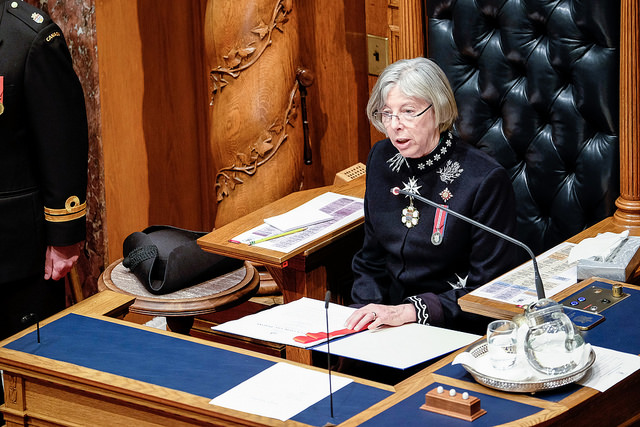Tuesday’s Throne Speech included a simple and powerful statement from British Columbia’s government: “We will continue to provide a positive example to the world that there is no need to choose between economic growth and fighting climate change.”
As the world turns its attention to the global climate change talks in Paris this December, B.C. is well placed to continue showing that cutting fossil fuel use and creating economic opportunity can go hand-in-hand. To do that, the province needs to write the next chapter in our climate success story.
The first phase of B.C.’s Climate Action Plan has been both an environmental and economic success. Polices such as the carbon tax, clean energy requirements and the low-carbon fuel standard have enabled the province to meet its 2012 interim target to cut carbon pollution. B.C.’s per-capita fossil fuel consumption has dropped relative to the rest of Canada and our economy has outperformed the Canadian average.
That success is being noticed. The president of the World Bank referred to B.C.’s carbon tax as one of the world’s most powerful examples of carbon pricing. Similarly, the secretary general of the Organization for Economic Co-operation and Development described it as the closest thing we have to a textbook example.
Similar climate policies are being introduced in North America and around the world. Since B.C.’s carbon tax was put in place in 2008, 14 new carbon-pricing policies have been implemented around the world. By 2016, a carbon price will apply to almost one-quarter of the world’s carbon pollution, up from 12 per cent today. If jurisdictions like Ontario, Washington and Oregon follow through on their carbon pricing commitments, the percentage will continue to grow.
Oregon and Washington are also following B.C. and California’s lead by implementing standards to reduce carbon pollution from transportation fuels. Step by step, these policies are helping to clean up transportation systems on the west coast — a region that is collectively equivalent to the world’s fifth-largest economy.
There is broad agreement that these types of actions from sub-national governments will be critical to the success of the climate negotiations in Paris. While a global climate agreement is the ultimate goal, smaller successes help to show what’s possible and bring that agreement within reach.
For B.C. to maximize its contribution in the buildup to Paris, it should put in motion the next phase of its Climate Action Plan. This would build on the first round of policies that were implemented in 2007 and 2008 and have since plateaued.
While a full climate plan may take more time, substantive progress can be made this year. When B.C. started to get serious about climate change back in 2007, it was able to introduce multiple pieces of legislation in under a year. Now the legislation is in place and ready to be taken to the next level.
The low-carbon fuel standard could be extended beyond 2020. The Building Code and Clean Energy Act could be used to reduce energy use in homes and buildings throughout the province. The carbon tax could be broadened and increased to further cut carbon pollution and strengthen the incentive to invest in clean energy.
In 2007, these policies were characterized as bold — and sometimes controversial — ideas. Critics warned of impending economic doom. In 2015, we see that the sky hasn’t fallen. The province has a track record of economic and environmental success showing that fortune favours the bold when it comes to climate action.
Whether it’s one of B.C.’s 200 clean technology companies that employ more than 8,000 people, or one of the 133 renewable electricity projects around the province, it takes less and less imagination to picture a successful low-carbon economy. These companies and projects are helping to diversify B.C.’s economy. They’re also positioning the province to take advantage of growing global demand for energy efficiency and renewable energy.
While leadership is still required to capitalize on those opportunities, doing so no longer requires a leap of faith.
Between now and the Paris climate talks in December, B.C. should make substantive progress on its Climate Action Plan. Now’s the time to build on our climate policy successes and lead the way to effective global action on climate change.









